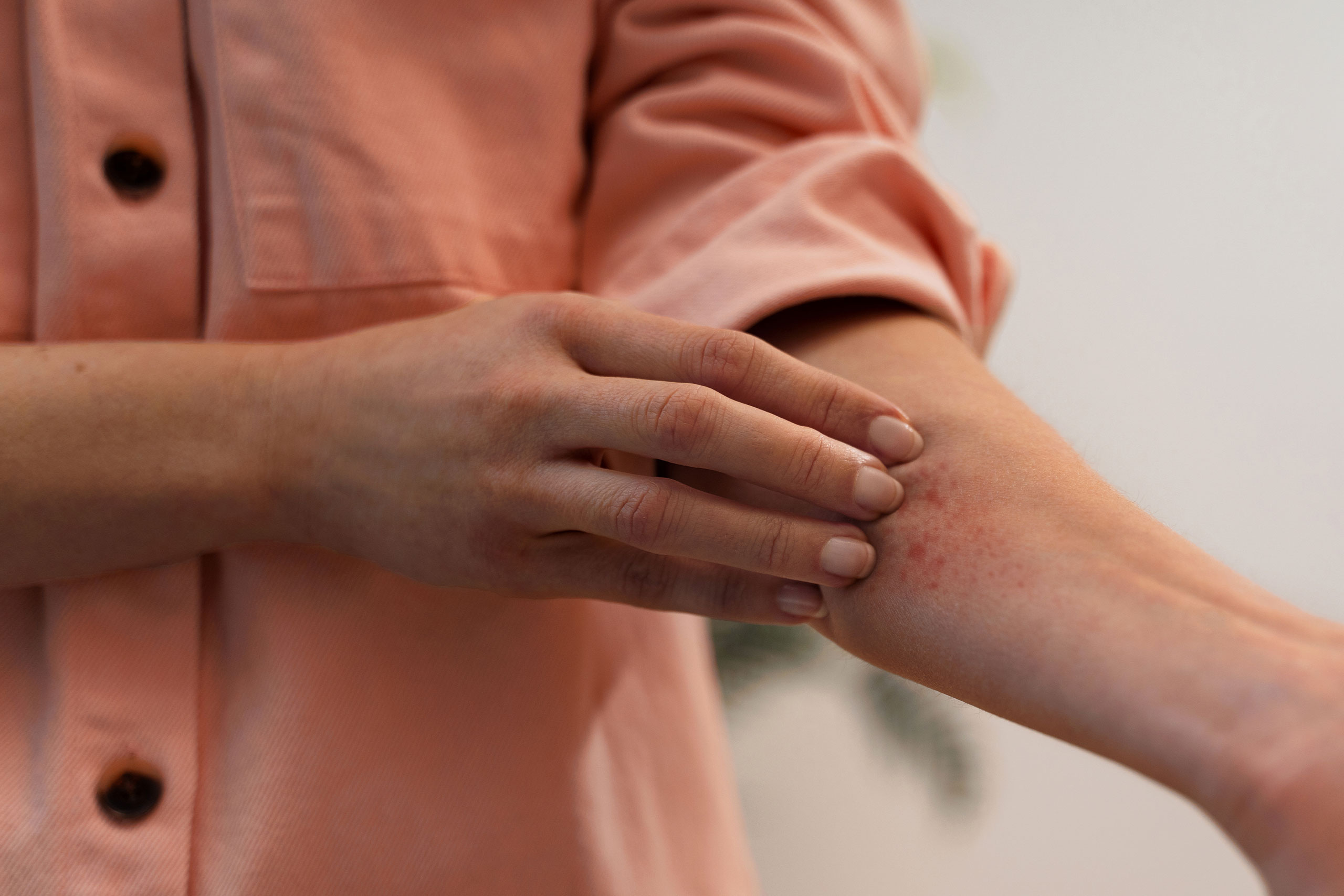SKIN INFECTIONS
Home > Skin Infections
Other Services
About Skin Infections
At Peak Dermatology, board-certified dermatologist Dr. Rex and his team of providers offer personalized treatment programs for a wide variety of skin infections. The most common dermal infections we treat are tinea versicolor, folliculitis, staph infection, and molluscum. Tinea versicolor or pityriasis versicolor is an infection that causes discoloration of the skin, resulting in light and/or dark spots. Molluscum contagiosum is a rash of bumps on the skin that can become inflamed and spreads quickly. Folliculitis is an inflammation of the hair follicles, resulting in red bumps on the skin, which can be caused by an ingrown hair, or a bacterial or fungal infection. A staph infection is an infection caused by the staphylococcus bacteria found on the skin. If you see discolored patches or spots on your skin, it is important to have it assessed by a seasoned professional, like Dr. Rex, right away. Call our office today to schedule a private consult.

Treatment Options
Every patient case will be different, which means our team will develop a treatment program that is unique for you. Treatment of tinea versicolor may vary from topical antifungals to oral medication, depending on the severity of your outbreak. With a molluscum infection, we use three basic methods: scrapping (curettage), freezing (cryotherapy), or cautery (heat therapy). Folliculitis can be treated with oral or topical antibiotics or antifungal medication. We may also recommend an antihistamine to help ease your pain or itching. A staph infection is almost always treated with an antibiotic.
Frequently Asked Skin Infections Questions
Skin Infections
Tinea Versicolor: occurs when the natural yeast on the skin is overgrown. Some factors that commonly trigger overgrowth are oily skin, frequent sweating, and a weak immune system. It is more likely to occur in athletes or those who live in a hot or humid climate.
Molluscum: is a viral disease that can be spread easily with skin-to-skin contact, or from coming into contact with objects that have been exposed to the virus (shared toys, sports equipment, articles of clothing, etc.).
Folliculitis: is inflammation that is typically caused by an ingrown hair or a bacterial or fungal infection at the hair follicles and can be contracted from hot tubs, heated pools, and shaving.
Staph Infection: staph is a bacteria that naturally lives on our skin, but when it enters the body through an open wound, it can cause an infection. A staph infection is caused by the staphylococcus bacteria and can be contracted by skin-to-skin contact or objects that aren’t properly disinfected or cleaned after use, such as clothes, gym mats, and workout equipment.
Your signs and symptoms will vary, depending on the type of skin infection you have. Dr. Rex and our team of providers will help determine what kind of skin infection you have during your private consultation.
Tinea Versicolor: may develop anywhere on the body, but it is most common on the arms, back, chest, and neck. The infection typically looks like a rash as spots or patches of skin become lighter or darker. The spots may be white, pink, red, or brown and may be more obvious when you have a tan. The infected skin may feel dry or scaly, but generally, it should not be itchy or painful.
Molluscum: is an itchy, red rash is the principal symptom of molluscum contagiosum. The bumps will appear primarily on the face, neck, arms (especially in the crevices of the armpits), and toward the top of the hands.
Folliculitis: symptoms include clusters of small red bumps that can look like pimples or pus-filled blisters, which usually itch or are painful. Folliculitis can occur on almost any area on the body that is covered in hair.
Staph Infection: can look like boils or oozing blisters on the skin. These boils can break open and are often very painful. In some cases, a staph infection can look like a sunburn or red hot spot. Many patients also experience a fever with a staph infection.
It’s very important to see a skincare professional right away if you see abnormal changes in your skin or suspect you may have an infection. We have been treating patients of all ages for years and encourage you to call Peak Dermatology to make an appointment for you or your child today.

